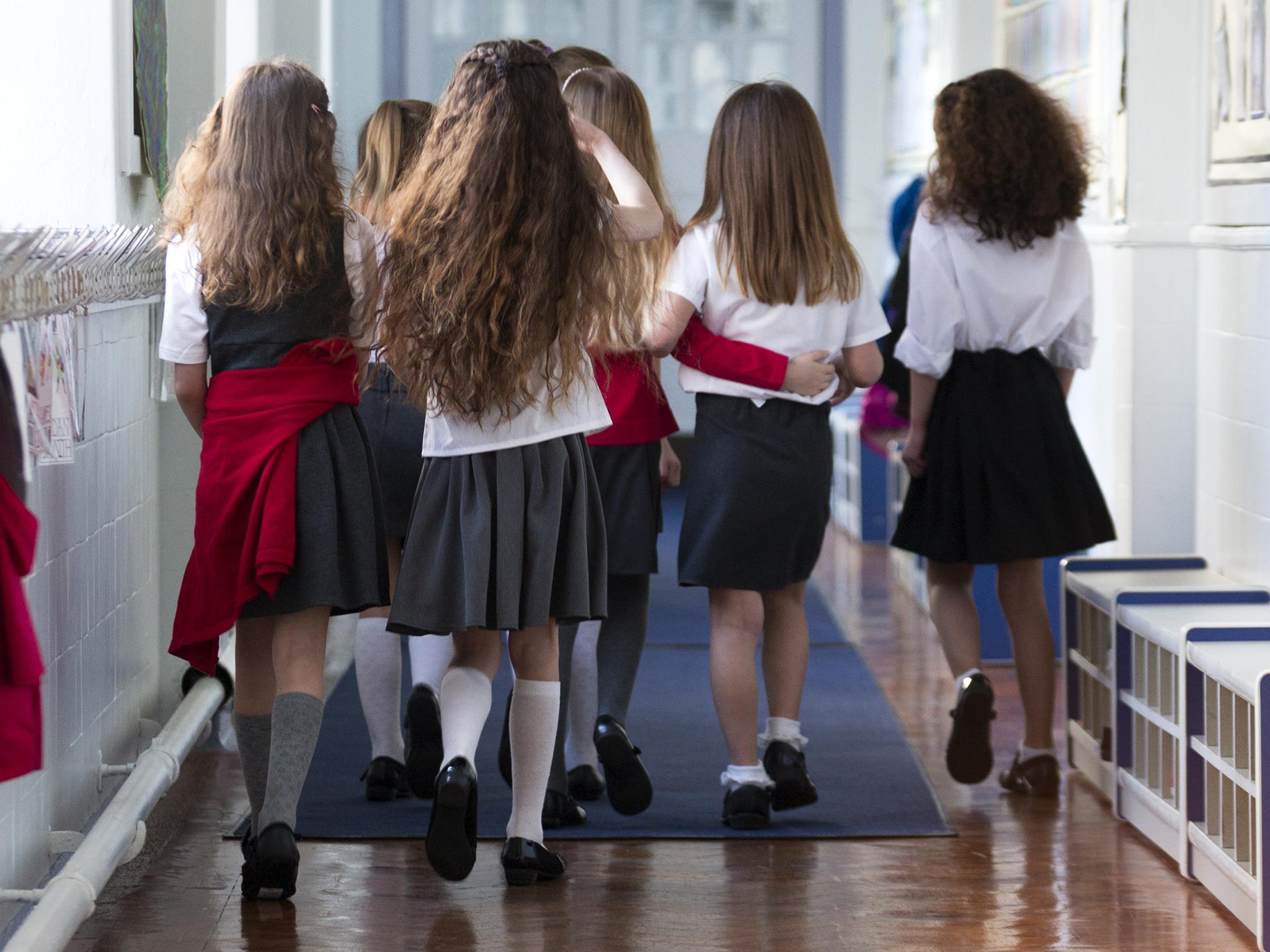A school has denied ice cream to pupils with ‘poor’ attendance. We are forcing children into our toxic workaholic culture
As adults we are indoctrinated into the idea that we need to push through sickness, through ill mental health and drag ourselves into work. Children, at least, should be excluded from these pressures


When I was 13 my mum asked the headteacher if she could take me out of school for two weeks on holiday. As a family we’d been through a hellish six months – my dad went into liver failure and luckily received a transplant, my mum’s mum died and my dad’s dad died. All in all, a bit of a shitter. The headteacher agreed and we were free to go, but my food tech teacher was not impressed when she learned I would not be in lessons to perfect a roux sauce, or whatever it is we were learning to make. She rolled her eyes and muttered under her breath about how I should be in school, instead of off on my jollies.
This week Hasting Hill Academy in Sunderland has been criticised for treating children with attendance levels at over 96 per cent to ice cream, while the kids who didn’t hit that attendance target had to sit and watch their peers enjoy a frozen treat from the humidity of their classroom. One parent complained their child was left out as they didn’t reach the attendance level because they had been ill in hospital with kidney problems.
Now, I accept it is important for children to gain an education. Learning to read and write is good, in my opinion. But why are we punishing children for being ill? Why is stringent, unfaltering attendance being held up as the goal we want children to achieve rather than a healthy life balance where when we’re ill we nurture ourselves and practice self care?
There are hundreds of reasons why children may not be able to reach the “ideal” attendance level. From what I am told (I have no children but understand they can be delightful), kids pick up bugs all the time. What is the harm in missing days of school to be ill and get better? In fact, I’d argue it’s a good idea for children to have the occasional day off to simply not be in school, so they can spend time with their families. Every so often stories come up in the news cycle of parents being chastised for taking their children out of school during term time to go on holiday, because heaven forbid they miss a week of learning about Henry VIII to spend time making memories with their loved ones.
The levels of school-aged children reporting to have depression and anxiety as a result of school pressures is growing with a Barnardo’s survey showing that almost half of children aged 12-16 felt sad or anxious about once a week with worries about school being one of their biggest concerns. It’s no wonder that children are feeling the pressures of school if every aspect of their education is being held up to these harsh targets.
As adults we are indoctrinated into the idea that we need to push through sickness, push through ill mental health and drag ourselves, unless literally on the brink of receiving our last rites in hospital, into work. Workers have almost a competitive streak as to who can work hardest while feeling the worst.
For full disclosure, I suffer from chronic mental health issues, most pointedly depression. I have good days and bad days, good months and bad months, and as a consequence probably take more sick days than most. I work freelance now, which means it’s easier to manage my condition and workload, but when I worked full time every morning was met with anxiety (on top of my usual anxiety) as to whether I would feel able to work that day or whether I would have to try and extract myself from the slog.
I had stretches of single days off, three to four days or full weeks. I’d make up excuses, though I had disclosed my mental illness I still felt the sting of shame for saying, “Sorry, I’m too depressed to work today”, as I thought I wouldn’t be understood. When I was back in work, I prayed that my absence would not be noted. I just wanted to slip back into the fold. I listened as my male coworkers bragged about their lack of used sick days, as if they were superior for their good health and luck, as I sat and felt guilt and shame for not being able to perform as well as my colleagues, as though I was defective and letting the team down. My work began to suffer and eventually I just left my job altogether.
If the incident at Hasting Hill is anything to go by, it seems like we’re bringing our children up to attain the same standards. To feel guilt and panic at being ill. Children and adults live with chronic illnesses. There are circumstances outside parents and certainly outside of children’s control that mean 100 per cent attendance is impossible. This is not something to be punished or looked down on. Let children be children – if they have to live a life of pushing through sickness as an adult, let them enjoy duvet days at home guilt-free as kids.
Join our commenting forum
Join thought-provoking conversations, follow other Independent readers and see their replies
Comments
Bookmark popover
Removed from bookmarks